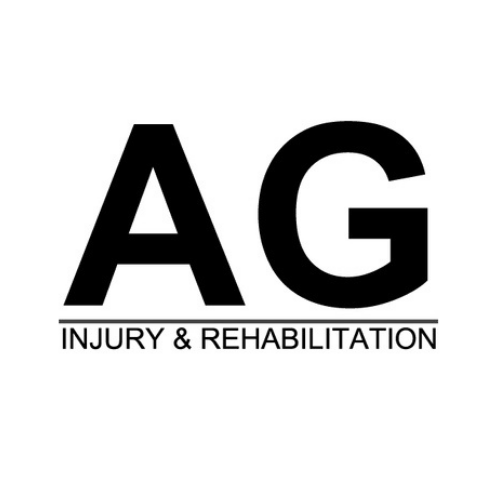Getting referred for an MRI scan in the UK can be quite frustrating, yet it is an important tool in getting an accurate diagnosis of your injury. But the cost of a private MRI scan can be costly, depending where you go and what you scan you need.
More people are choosing to pay privately for MRI scans to skip the long NHS wait times and get an answer to what is causing their pain. Whether or not you think a private MRI scan is expenses is obviously down to personal preference. Sometimes the cost of private healthcare isn't always accessible to everyone in the UK, whereas some are lucky enough to have access to it through workplace schemes or a health insurance provider.
What is an MRI scan?
Magnetic Resonance Imaging (MRI) is a noninvasive medical imaging test that produces detailed images of almost every internal structure in the human body, including the organs, bones, muscles, and blood vessels[1][2][3][4][5][6]. It uses magnets and radio waves to create these MRI images, and no ionizing radiation is produced during an MRI exam, unlike X-rays[1][4].
Here are some key points about MRI scans:
- MRI is a type of diagnostic test that can create detailed images of nearly every structure and organ inside the body[1].
- MRI is a noninvasive way for a medical professional to examine your organs, tissues, and skeletal system[2].
- MRI is the most frequently used imaging test of the brain and spinal cord[2].
- A special type of MRI is the functional MRI of the brain, also known as fMRI. It produces images of blood flow to certain areas of the brain and can be used to examine the brain's anatomy and show which parts of the brain are handling critical functions, language, and movements[2].
- MRI can check for tumors or other irregularities in many organs in the body, including the brain, spinal cord, heart, and breast[4][5].
- During an MRI scan, the patient lies on a table that slides inside a tunnel-shaped machine. The MRI machine creates a strong magnetic field around the patient and sends pulses of radio waves from a scanner. The strong magnetic field created by the MRI scanner causes the atoms in the patient's body to align in the same direction. Radio waves are then sent from the MRI machine and move these atoms out of the original position. As the radio waves are turned off, the atoms return to their original position and send back radio signals. These signals are received by a computer and converted into an image of the part of the body being examined[1][4].
- An MRI scan is painless, but the machine makes a lot of noise. The technician may offer earplugs to the patient[6].
- Before getting an MRI scan, the patient should tell their doctor if they are pregnant or have any medical devices or implants in or on their body[6].
Average NHS wait times for an MRI scan
The time you will have to wait for an MRI scan through the NHS will vary dependant on where in the UK you live and which NHS trust you are under. However according to the NHS website, the average wait time for an MRI scan is 6-18 weeks from the date you are referred by your doctor or healthcare professional.
How much does a private MRI scan cost?
The average price of a private MRI scan of course varies across healthcare providers and may depend on what body part you need scanning. Sometimes it might be beneficial to have several parts of the body scanned. For example if you have a knee injury and back pain after being in a car accident, having an MRI scan on your knee joint and spinal MRI could help diagnose your injuries and cause of pain. There would not need to be two separate appointments however the scan would be longer as it will need to take images of two areas so could be more expensive than a lower body MRI alone. There are also options for a full-body MRI to cover everything if that is necessary for you, however this is obviously comes at an extra cost so you should speak to your health care provider to decide if this is the best route for you specifically.
A private scan can vary in cost between £200 to £1500, however the average cost of an MRI across the UK is around £350. I would always advise to do a bit of comparison shopping as it may be cheaper to travel a little bit to access a more affordable diagnostic test. Some providers that offer MRI knee scans include:
- Nuffield Health (£595)
- Vista Health (£249)
- BMI (£395)
- Spire Healthcare (£345)
- Cobalt Health (£295)
Note: these will vary slightly depending on which clinic you choose to visit for your MRI scan.
Can I get an MRI scan through my health insurance?
If you have private healthcare either through your own choice or as an employee benefit at work, you might be able to get an MRI scan paid for through that depending on what insurance plan you have. Some insurance companies will fully fund a scan, whereas others might pay a percentage of the medical costs, dependent on their health plans. A knee MRI scan would usually not be refused through your insurance provider, depending on how the injury started. The best way would be to speak to your insurance company directly or check your policy to be sure if you would be covered for MRI procedures.
What are the alternatives to an MRI?

There are several options if you think an MRI scan isn't for you, for whatever reason. The following options could be more affordable, convenient or accessible to you:
Physiotherapy Assessment
A physiotherapy assessment is a process that a physiotherapist uses to evaluate a patient's physical condition and develop a treatment plan. Here are some key points about physiotherapy assessments:
- A physiotherapy assessment typically begins with a face-to-face consultation, during which the physiotherapist will ask questions about the patient's medical history, symptoms, and lifestyle. The physiotherapist will also ask about what aggravates and eases the pain[1][6].
- During the physical examination, the physiotherapist will test movement, strength, joints, and check for signs of nerve pain. Depending on where the issue is on the body, it may be necessary to remove some clothing in order to carry out the examination effectively. The physiotherapist will only do enough to give them an idea of what is going on, and if at any point the patient experiences too much pain to continue, the physiotherapist will stop[1][6].
- The physiotherapist may use various assessment techniques to evaluate the patient's physical condition, such as the Beighton score, Blackburne-Peel Ratio, Blink Reflex, and others[2].
- A physiotherapy assessment may also include a psychosocial exam, which can help the physiotherapist understand the patient's emotional and mental state and how it may be affecting their physical condition[5].
- The physiotherapist may use digital tools to conduct the assessment, such as telehealth, which has been shown to be valid and reliable for specific assessment types in limited situations[3][4].
- The physiotherapist will use the information gathered during the assessment to develop a treatment plan tailored to the patient's specific needs. The treatment plan may include exercises, manual therapy, education, and other interventions[1][6].
Ultrasound Scan
Musculoskeletal (MSK) diagnostic ultrasound is a non-invasive and safe imaging technique that uses high-frequency sound waves to produce real-time images of bones, joints, tendons, muscles, bursae, ligaments, and nerves[1][2][4][5][6]. Here are some key points about MSK diagnostic ultrasound:
- MSK diagnostic ultrasound is used to diagnose a wide range of injuries and chronic conditions, including muscle tears, tendonitis, bursitis, joint problems, rheumatoid arthritis, and masses such as tumors or cysts[2][4][5].
- MSK diagnostic ultrasound is particularly helpful in the medical diagnosis of orthopedic and sports injuries such as rotator cuff tears, and chronic conditions such as rheumatoid arthritis[2].
- MSK diagnostic ultrasound is a dynamic imaging study that is best utilized in the context of a patient-specific clinical history and physical examination[1].
- MSK diagnostic ultrasound is a hands-on, dynamic, and interactive examination that allows the practitioner to use real-time high-resolution soft tissue imaging[6].
- During an MSK diagnostic ultrasound, the patient may be asked to sit on the exam table, on a swivel chair, or lie face up or face down. A small amount of warm gel is applied to the area being examined, and the sonographer glides the ultrasound transducer (wand) over the skin to capture images of the tissues below, which are then sent to a computer[2][5].
- MSK diagnostic ultrasound is safe, noninvasive, and does not use ionizing radiation[5].
- MSK diagnostic ultrasound is also used by musculoskeletal radiologists to guide injections and procedures, because it allows for real-time visualization of the joints and soft tissue[2][5].
CT Scan
A CT (computed tomography) scan is a diagnostic imaging test that uses X-rays and computer technology to produce detailed images of bones, muscles, and other tissues in the body[4][5]. Here are some key points about CT scans and how they are used to diagnose MSK injuries:
CT scans are used to diagnose a wide range of musculoskeletal injuries and conditions, including fractures, bone damage, lesions, tumors, infections, and blood clots[4][5]. CT scans can also be used to evaluate soft tissues such as muscles, tendons, and ligaments[4].
CT scans are particularly useful in the evaluation of complex anatomic areas, such as the spine and pelvis, where other imaging modalities may not provide enough detail[3].
During a CT scan, the patient lies on a table that slides into a doughnut-shaped machine. The machine rotates around the patient, taking X-ray images from different angles. A computer then combines these images to create detailed, cross-sectional images of the body[4][5].
CT scans are generally painless, but the patient may be asked to hold their breath for a few seconds during the scan to reduce motion artifacts[5].
CT scans use ionizing radiation, which can be harmful in high doses. However, modern CT scanners use low-dose radiation protocols to minimize the risk of radiation exposure[5].
In summary, private healthcare costs can be higher and it is always going to be more expensive but it has its benefits such as service provision, reduced wait times, convenient locations. Whether or not opting for a private scan is entirely down to personal preference, your individual situation and how urgently you need/want the scan. Often in more life-threatening conditions your NHS wait time would be much less, however if you have suffered a football injury for example and need a diagnosis to begin your rehab, this might not be prioritised by the NHS, so a private scan might be a better, more efficient option. You could always speak to your doctor or healthcare provider to help you decide if an MRI scan is needed for your injury or an alternative route would be more efficient. They might also have access to more accurate current wait times, too.

